
🔖 MYTH BUSTING 101
Let Go of Old Beliefs, Grow in New Understanding
When someone you care about is diagnosed with ADHD in adulthood, it’s common to feel a mix of confusion, relief, and doubt. So much of what we think we know about ADHD comes from outdated stereotypes, schoolyard assumptions, or social media soundbites. That’s why we’ve taken a direct, practical approach: myth-busting. Instead of lecturing about neuroscience or offering generic advice, this guide shines a light on what ADHD isn’t — so we can get closer to what it actually is. Each of the 101 myths we tackle reflects a barrier to understanding, empathy, or effective support — and each truth offers a bridge across that gap.
The nine themed sections of Myth Busting 101 span the entire ADHD experience: from the invisible struggles with motivation and memory, to the emotional intensity and relational breakdowns, to the broader issues of stigma, identity, and unrecognised strengths. Whether you're a parent, partner, sibling, colleague, or friend, these myth busters will help you stop taking symptoms personally, start recognising patterns, and shift from reaction to compassion. ADHD can be frustrating — but misunderstanding makes it far harder. When you educate yourself, you don’t just become more informed — you become a better ally. And that can make all the difference.

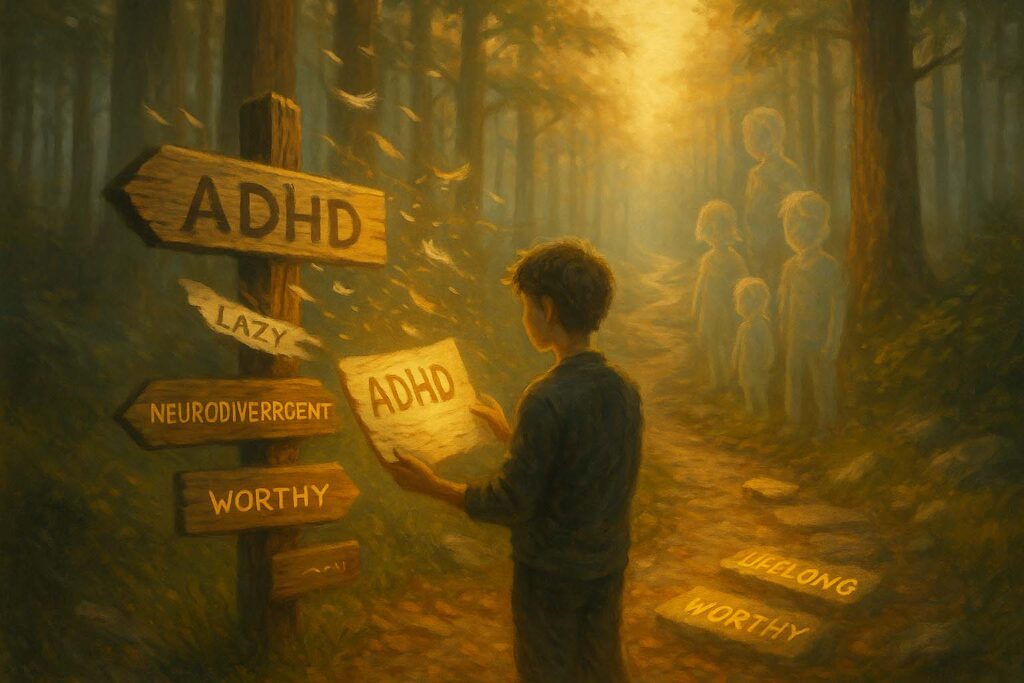
🔍 Diagnosis & Identity
Misunderstanding ADHD starts with misunderstanding what it is. Many myths in this section reflect outdated beliefs that ADHD is just a childhood condition, a behaviour problem, or a modern excuse for poor habits. In reality, ADHD is a lifelong neurodevelopmental condition that affects attention, regulation, motivation, and executive functioning. Adults with ADHD often grow up misunderstood — especially if they masked symptoms through overachievement, people-pleasing, or high intelligence. This section busts myths like “you can’t have ADHD if you’re smart,” or “you should’ve grown out of it,” and replaces them with a deeper truth: ADHD isn’t a failure of willpower — it’s a difference in wiring. Recognising these foundational myths is the first step toward healing self-concept, improving relationships, and unlocking better support.

⚡ Motivation & Effort
This section takes aim at one of the most common misconceptions: that people with ADHD just don’t try hard enough. Here, we explore how motivation works differently in ADHD — not because of laziness, but because of how the brain responds to urgency, novelty, and emotional salience. These myths are especially painful because they imply that someone’s inability to start or finish something is a character flaw, rather than an issue of task initiation, working memory, or regulation. You’ll read truths that reframe procrastination, inconsistency, and missed deadlines not as excuses, but as signs of neurological struggle. Whether you’re living with ADHD or supporting someone who is, this section invites a critical shift in thinking: It’s not about how much someone wants to succeed — it’s about whether their brain is letting them get there.
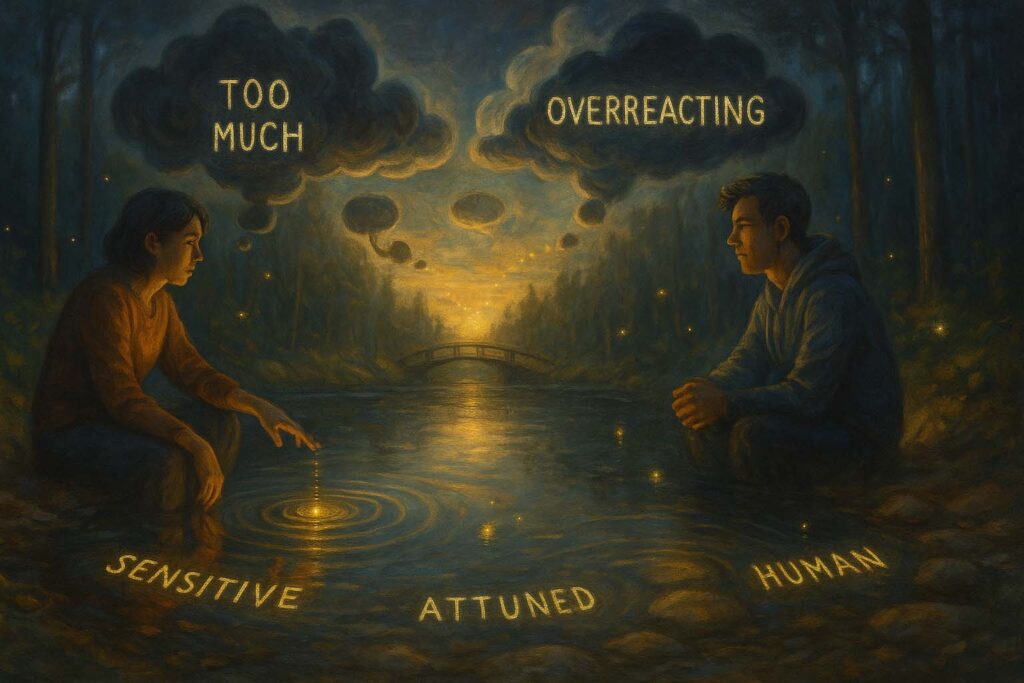
💬 Emotions & Relationships
ADHD is often framed around focus, but its emotional effects are just as important — and often more hidden. This section explores how ADHD intensifies feelings, shortens emotional fuses, and makes relational repair harder. Misunderstandings like “they’re too sensitive” or “they overreact” are dismantled here. We also confront how rejection sensitivity, impulsive speech, and emotional flooding can sabotage even loving relationships. For family members, partners, and friends, this section offers insight into how ADHD affects not just what people feel, but how they express it and recover from it. The myths here are especially important for relational healing: when emotional outbursts or shutdowns are seen not as manipulative, but as symptoms of dysregulation, we can move from blame to understanding — and from distance to connection.
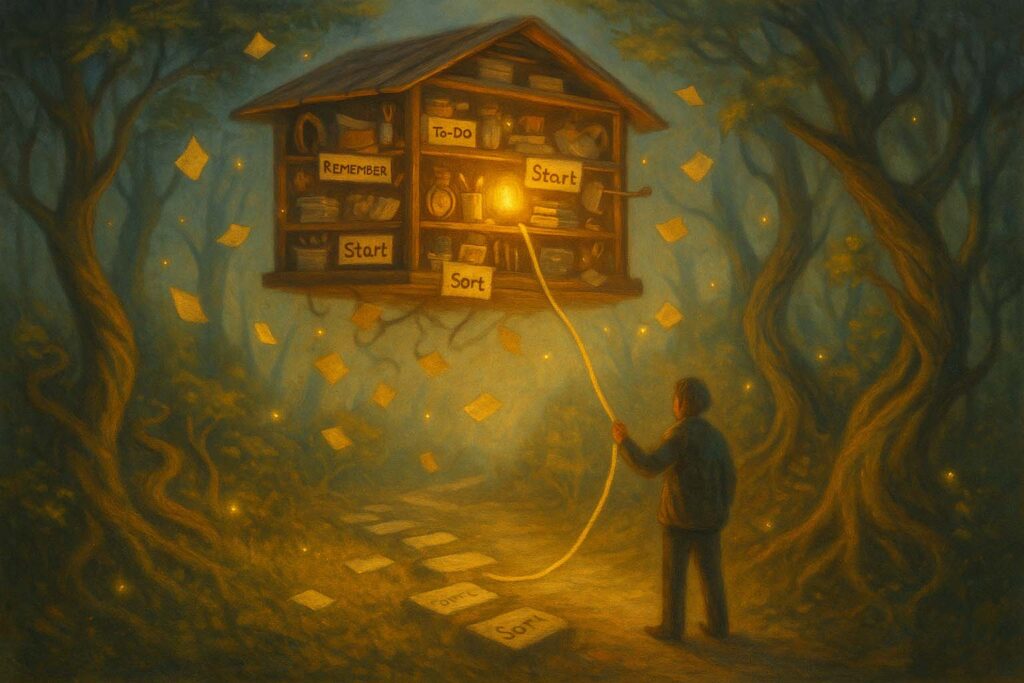
🗂️ Organisation & Productivity
To the outside world, adults with ADHD often look scattered, unreliable, or chaotic — especially when it comes to organising space, time, and responsibilities. This section debunks myths like “they just don’t care” or “they’re being lazy,” replacing them with real explanations grounded in executive dysfunction. ADHD affects working memory, time perception, and decision-making, which makes even simple tasks feel overwhelming. You’ll learn why mess builds up, why routines break down, and why systems often fail — not because the person isn’t trying, but because their brain works differently. This section is especially helpful for workplaces and households, where ADHD is most likely to be judged and misinterpreted. The truth? Many people with ADHD are capable of extraordinary productivity — but only when their systems match their neurotype.
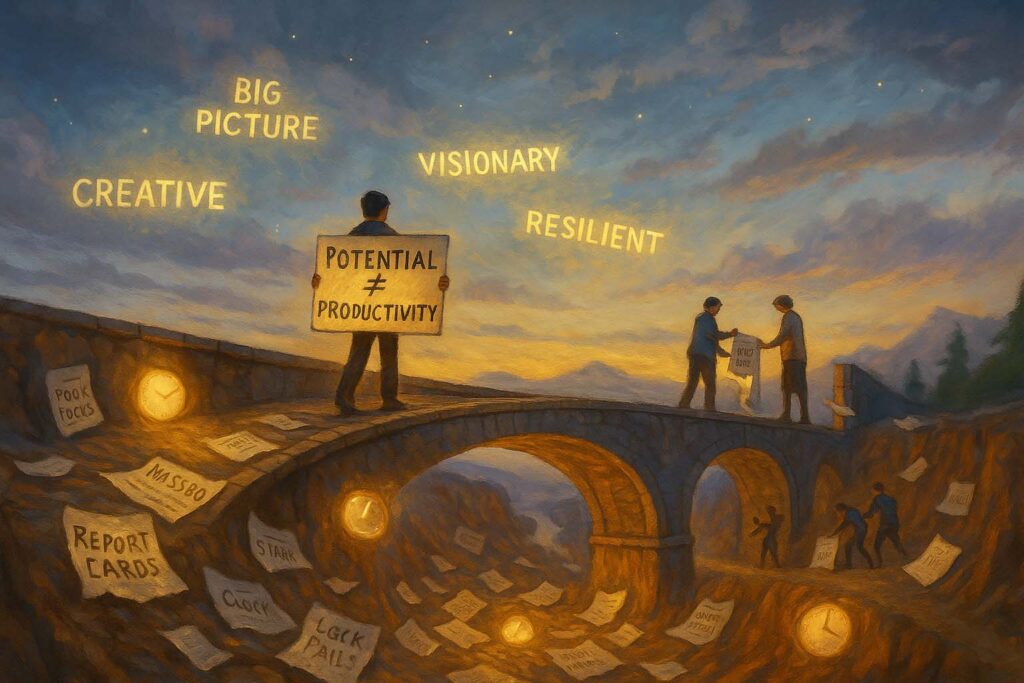
🏢 Workplace & Education
Myths in this section live in boardrooms, classrooms, and inboxes — environments that demand consistency, linear thinking, and speed. Adults with ADHD often face criticism that they’re “not professional,” “not focused,” or “not committed.” Here, we challenge those myths with truths about how ADHD interacts with structured environments. You’ll discover why multitasking drains attention, why feedback can feel crushing, and why people with ADHD sometimes thrive in crisis but fall apart in calm. This section also highlights the double bind of masking and burnout — where adults have succeeded by overcompensating but are now exhausted. With practical reframes, we show that ADHD isn’t a barrier to success — but misunderstanding it often is.
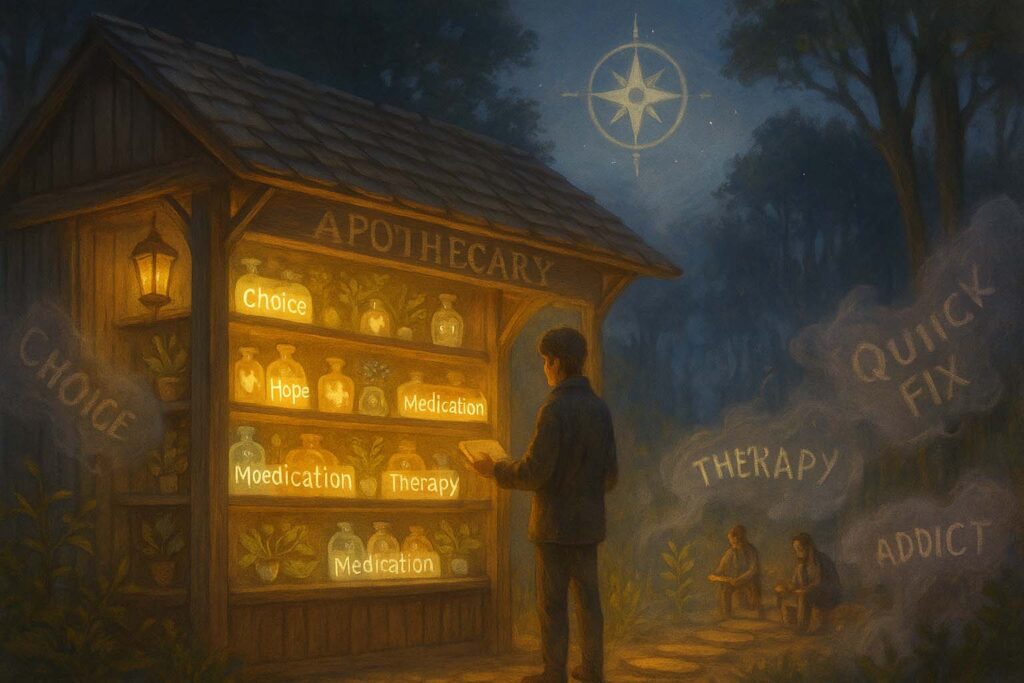
💊 Medication & Treatment
Stigma around ADHD medication runs deep — especially for adults new to their diagnosis. Myths in this section range from “it’s just legal speed” to “you shouldn’t need pills for that.” We unpack those fears and explain what treatment really does: it supports brain function — it doesn’t erase personality. You’ll also learn why treatment is highly individual, why some people choose meds while others don’t, and why therapy, coaching, or lifestyle shifts are powerful complements. This section encourages thoughtful, nonjudgmental conversations about choice, access, and harm reduction. For many adults, this is the part of the journey where shame gives way to empowerment.

🌍 Gender, Age & Culture
ADHD doesn’t present equally across all genders, ages, and cultural backgrounds — and this section explains why so many people have been overlooked. From quiet girls who were told they were just anxious, to middle-aged men dismissed as forgetful, to migrants who never had access to formal diagnosis, this section explores how stereotypes have shaped who gets seen and supported. You’ll read myths like “ADHD is a white boy’s diagnosis” or “they’re just getting older” — and learn the truth: that neurodiversity is real in every culture and every body. This section is especially important for equity and late-life validation.
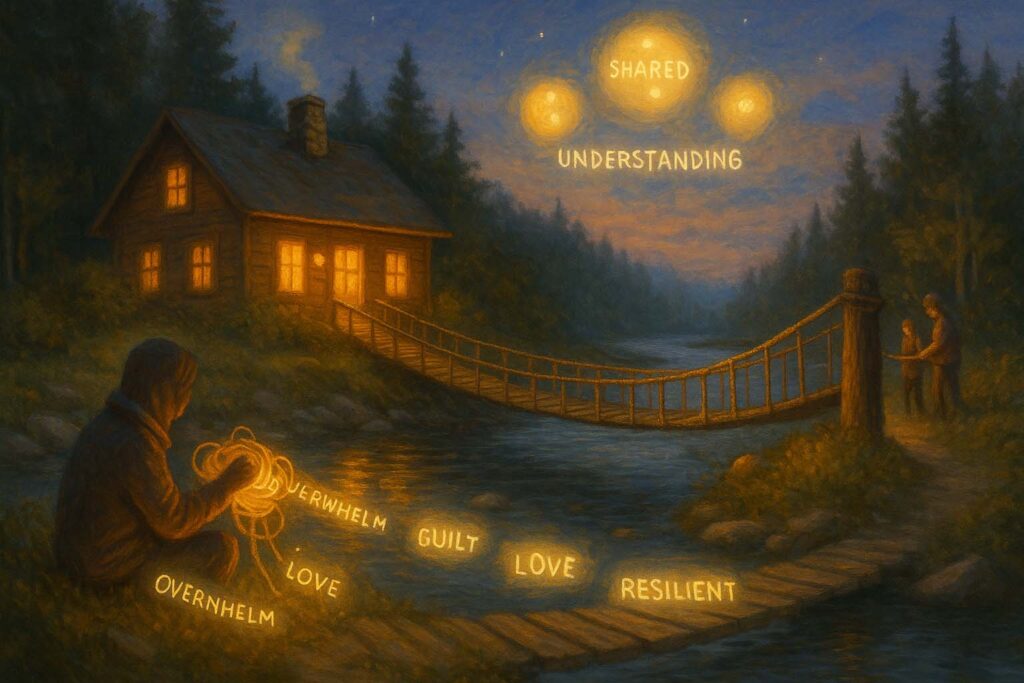
🏠 Family Dynamics
Living with or loving someone with ADHD can stretch patience and deepen compassion — and misunderstanding often leads to resentment. This section unpacks the relational myths that turn frustration into fracture. Myths like “they don’t care,” “they’re selfish,” or “I have to do everything myself” are challenged with insights into scaffolding, co-dependence, and repair. We look at how ADHD can strain communication, task-sharing, and emotional labor — and how to rebuild a home culture of empathy and shared responsibility. Families don’t thrive on blame — they thrive on clear expectations, co-created routines, and flexibility that honours everyone’s needs.
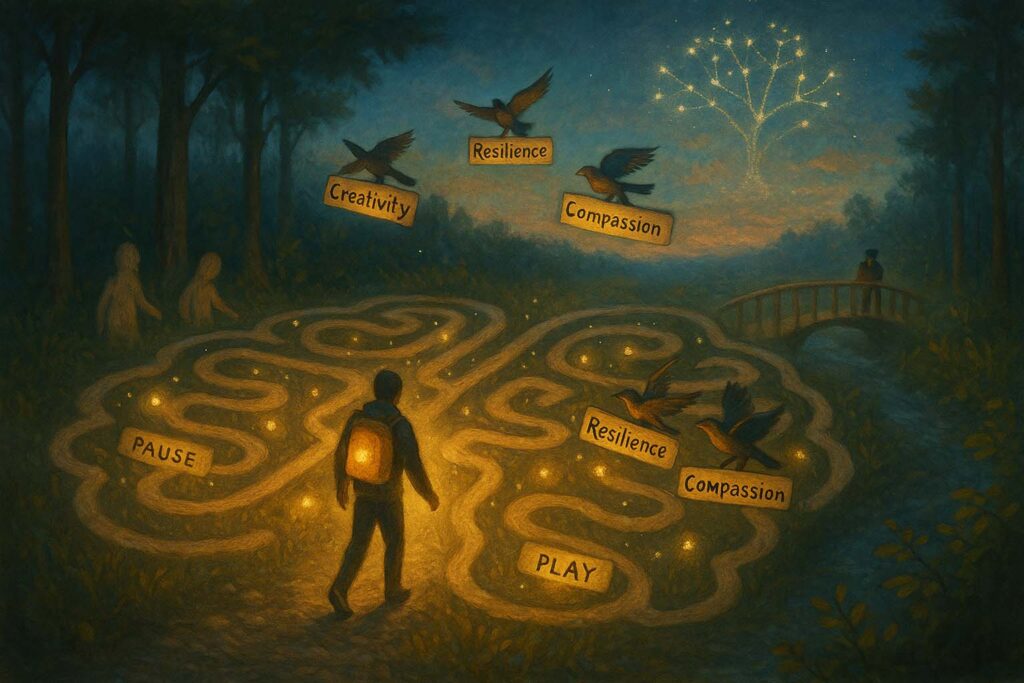
🧠 Executive Function
This final section zooms out to reframe the entire ADHD experience. Executive dysfunction — the root of many ADHD symptoms — affects planning, time, emotion, and decision-making. It doesn’t mean someone is broken — it means they need external structure, internal permission, and personalised support. These myths often sound like “they’ll never change,” “they’re hopeless,” or “they’re not trying hard enough.” But the truth is more hopeful: many ADHDers are doing invisible work just to survive each day — and with support, they flourish. This section closes with strength-based truths about creativity, resilience, empathy, and non-linear growth. ADHD brains are not defective — they are wired for insight, originality, and big-hearted depth, once we stop forcing them into neurotypical molds.

🌟 Keep the Conversation Growing
Myth Busting 101 is more than a guide — it’s a starting point for real change. Every myth you unlearn helps lighten the emotional load your loved one carries. Every truth you share helps challenge the stigma that keeps so many adults with ADHD misunderstood, mislabelled, and unsupported.
As you explore each section, take what resonates and pass it on — in your home, your workplace, your friendships. Speak up when old assumptions surface. Share this resource with others walking the same journey. When we replace judgment with insight, we don’t just support one person — we shift the culture. Understanding isn’t passive. It’s a powerful act of love.
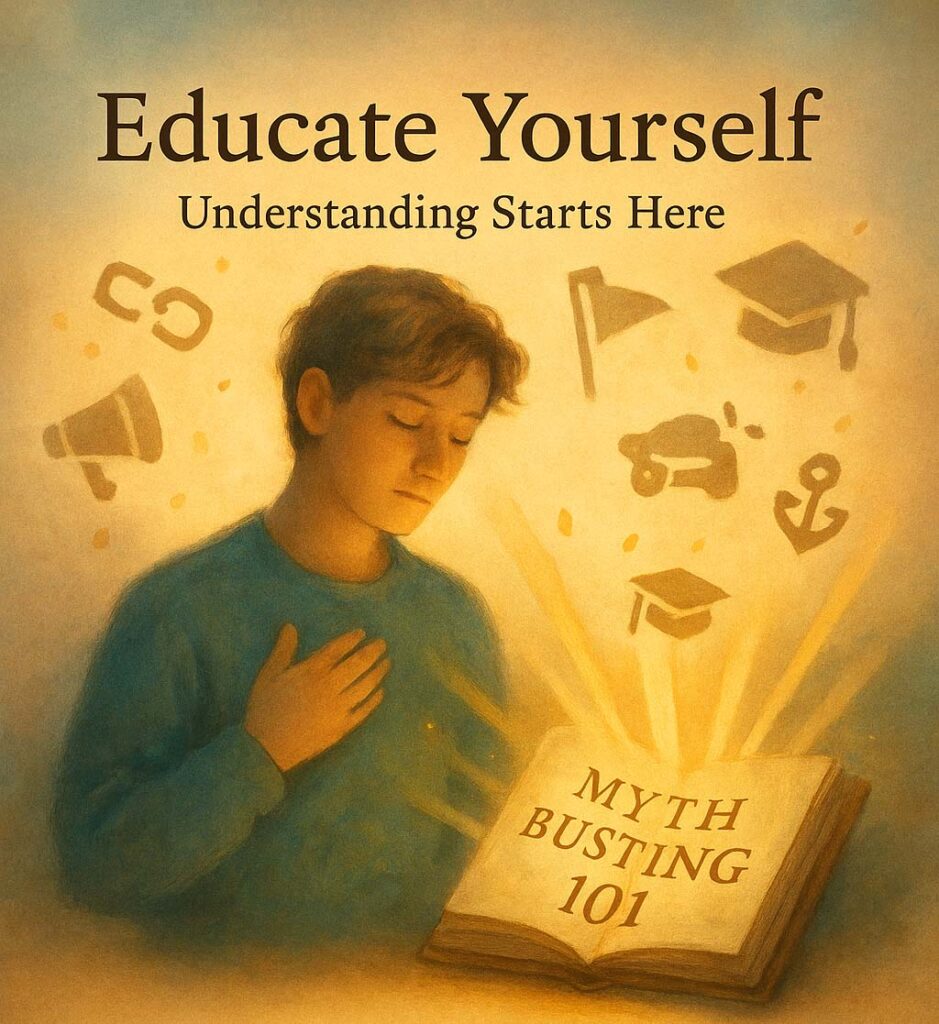
Mon - Fri: 8AM - 6PM
Sat - Sun: Variable
Brisbane North Medical Specialists,
15 Dallas Parade, Keperra, QLD 4054
(07) 5221 3489
reception@bnms.com.au
